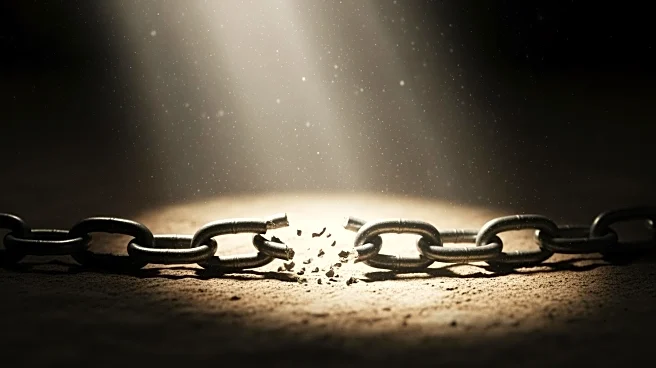What's Happening?
Ilan Dalal, the father of Guy Gilboa-Dalal, a former hostage held by Hamas, has spoken about his son's ordeal and recovery process. Guy was kidnapped during the October 7 attack and endured significant trauma while in captivity. Despite the challenges,
Ilan Dalal expressed optimism about his son's recovery, stating that with love and support from family and friends, Guy is expected to heal over time. The emotional toll of the captivity has been described as a 'nightmare,' but the family remains hopeful for Guy's future.
Why It's Important?
The release and recovery of hostages like Guy Gilboa-Dalal highlight the ongoing humanitarian issues related to the conflict in Gaza. The psychological and physical impacts on hostages and their families are profound, affecting their long-term well-being. This situation underscores the need for international attention and intervention to address hostage situations and ensure the safety and recovery of affected individuals. The family's experience also sheds light on the broader implications of conflict and the importance of support systems in recovery processes.
What's Next?
As Guy Gilboa-Dalal continues his recovery, efforts to support him and other former hostages are likely to intensify. The focus will be on providing psychological and emotional support to help them reintegrate into society. Additionally, international and local organizations may increase advocacy for the safe return of remaining hostages and push for diplomatic solutions to prevent future kidnappings. The family's journey may also inspire further discussions on the impact of captivity and the necessary measures to support victims.
Beyond the Headlines
The ordeal faced by hostages like Guy Gilboa-Dalal raises ethical questions about the treatment of captives and the responsibilities of governments and organizations in negotiating their release. It also highlights the cultural and societal impacts of conflict, as families and communities rally to support affected individuals. Long-term shifts in policy and public perception regarding hostage situations may emerge, influencing future diplomatic and humanitarian strategies.
















